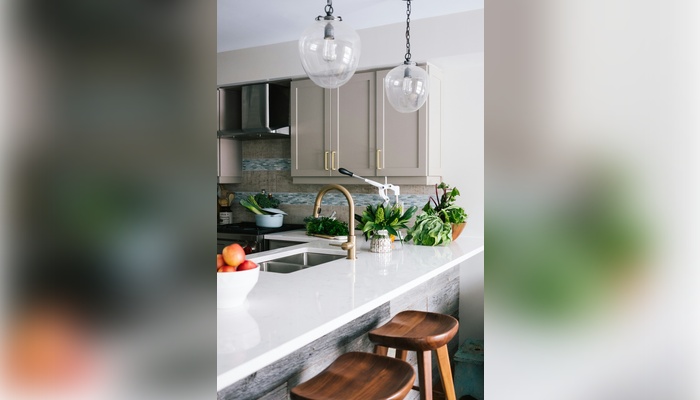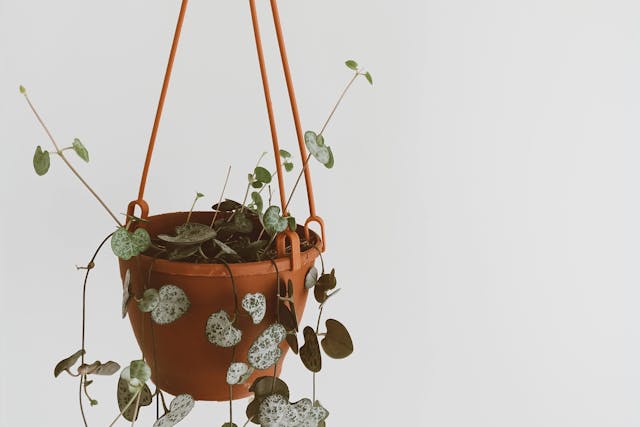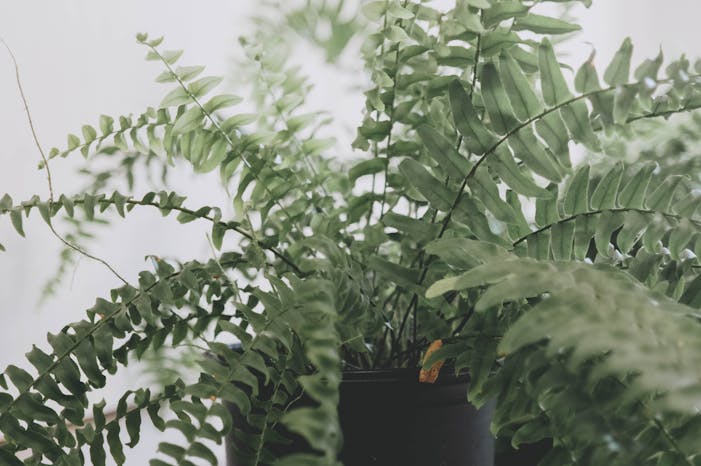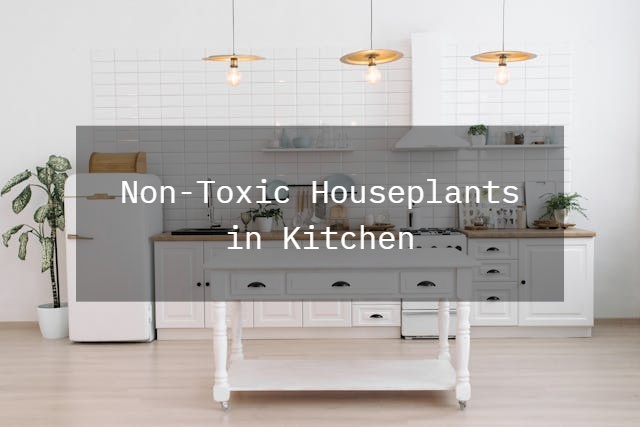Are you looking to add a touch of greenery to your kitchen but worried about the safety of your pets or kids? You’re not alone! Many homeowners want to bring nature indoors but are cautious about choosing plants that are both beautiful and safe. The good news is, there are plenty of best non-toxic houseplants for kitchen spaces that are not only safe but also thrive in the unique environment of a kitchen.
In this blog, we’ll explore the top non-toxic houseplants perfect for your kitchen, their benefits, and tips to care for them. Whether you’re a seasoned plant parent or a beginner, this guide will help you create a vibrant, healthy, and safe kitchen space.

Why Choose Non-Toxic Houseplants for Your Kitchen?
The kitchen is the heart of the home, and adding plants can make it feel even more inviting. However, kitchens often have fluctuating temperatures, humidity, and limited light, which can make plant selection tricky. On top of that, if you have curious pets or children, you’ll want to ensure the plants you choose are non-toxic.
Non-toxic houseplants are safe for both humans and animals, making them ideal for busy households. Plus, many of these plants also purify the air, reduce stress, and add a refreshing aesthetic to your cooking space. Let’s dive into the best non-toxic houseplants for kitchen settings.
1. Spider Plant: The Air-Purifying Champion
Spider plants are a classic choice for kitchens, and for good reason. These hardy plants are non-toxic to pets and humans, making them one of the best non-toxic houseplants for kitchen environments. They thrive in indirect light and can tolerate occasional neglect, which is perfect for busy homeowners.
Spider plants are also known for their air-purifying abilities. They remove toxins like formaldehyde and xylene from the air, ensuring your kitchen stays fresh and clean. Hang them in a macramé planter or place them on a shelf to add a touch of greenery without taking up counter space.
2. Boston Fern: The Humidity-Loving Beauty
If your kitchen tends to get steamy, a Boston fern is an excellent choice. These lush, feathery plants thrive in high humidity and indirect light, making them perfect for kitchens. Boston ferns are also non-toxic, so you don’t have to worry about your pets or kids getting curious.
In addition to being safe, Boston ferns are natural air purifiers. They help remove pollutants like formaldehyde and benzene, which can be found in cleaning products and cooking fumes. Place your Boston fern near a window or on a countertop to create a vibrant, tropical vibe.
3. Herbs: Functional and Non-Toxic
Why not combine beauty and functionality? Many herbs are non-toxic and thrive in kitchen environments. Basil, thyme, rosemary, and parsley are all safe for pets and humans, and they’re incredibly useful for cooking.
Growing herbs in your kitchen is a win-win. You’ll always have fresh ingredients on hand, and the greenery will brighten up your space. Place your herb pots on a sunny windowsill, and enjoy the convenience and beauty they bring.
4. African Violet: A Pop of Color
If you’re looking to add a splash of color to your kitchen, African violets are a fantastic option. These compact plants produce vibrant blooms in shades of purple, pink, and white, making them a cheerful addition to any kitchen.
African violets are non-toxic and thrive in bright, indirect light. They’re perfect for small spaces, like windowsills or countertops. Plus, their low-maintenance nature makes them ideal for busy households.
5. Parlor Palm: Elegant and Safe
Parlor palms are a stylish and safe choice for kitchens. These elegant plants are non-toxic and can tolerate low light, making them versatile for various kitchen layouts. Parlor palms are also excellent air purifiers, removing toxins like benzene and formaldehyde from the air.
Their feathery fronds add a touch of sophistication to your kitchen, whether you place them on the floor or a countertop.


6. Peperomia: Compact and Low-Maintenance
Peperomia plants are known for their unique foliage and compact size, making them perfect for kitchens with limited space. These plants are non-toxic and come in a variety of colors and textures, so you can choose one that matches your kitchen’s aesthetic.
Peperomias thrive in bright, indirect light and require minimal care. Their small size makes them ideal for windowsills, shelves, or even hanging planters.
7. Cast Iron Plant: Tough and Resilient
As the name suggests, cast iron plants are incredibly tough and can withstand a variety of conditions, including low light and neglect. These plants are non-toxic and perfect for kitchens that don’t get a lot of natural light.
Cast iron plants have dark green, glossy leaves that add a touch of elegance to your kitchen. They’re also slow-growing, so you won’t need to worry about frequent repotting.
8. Areca Palm: Tropical and Air-Purifying
Areca palms are a popular choice for kitchens because of their tropical appearance and air-purifying abilities. These plants are non-toxic and thrive in bright, indirect light.
Areca palms are particularly effective at removing toxins like formaldehyde and xylene from the air. Their feathery fronds create a relaxing, resort-like atmosphere in your kitchen.
9. Money Plant: Lucky and Low-Maintenance
Money plants, also known as Pothos or Devil’s Ivy, are a popular choice for kitchens due to their low-maintenance nature and non-toxic properties. These plants are believed to bring good luck and prosperity, making them a favorite in many households.
Money plants thrive in indirect light and can grow in water or soil. Their trailing vines make them perfect for hanging planters or high shelves.
10. Calathea: Striking and Safe
Calatheas are known for their stunning, patterned leaves and non-toxic properties. These plants thrive in indirect light and high humidity, making them a great fit for kitchens.
Calatheas are also pet-friendly, so you don’t have to worry about your furry friends getting into them. Their unique foliage adds a bold, artistic touch to your kitchen decor.
Tips for Caring for Your Kitchen Houseplants
Now that you’ve chosen the best non-toxic houseplants for kitchen spaces, here are some tips to keep them thriving:
- Light: Most kitchen plants thrive in bright, indirect light. Place them near windows or under skylights for optimal growth.
- Water: Avoid overwatering. Check the soil moisture before watering, and ensure your pots have proper drainage.
- Humidity: Kitchens can get humid, which is great for some plants. If your kitchen is dry, consider using a humidifier or misting your plants.
- Cleaning: Dust your plants regularly to keep their leaves clean and healthy.
- Pests: Keep an eye out for pests like spider mites or aphids. If you spot any, treat them immediately with natural remedies like neem oil.
Conclusion
Adding plants to your kitchen is a wonderful way to enhance the space’s beauty and functionality. By choosing the best non-toxic houseplants for kitchen environments, you can create a safe, stylish, and healthy atmosphere for your family and pets.
From air-purifying spider plants to vibrant African violets, there’s a perfect plant for every kitchen. So, go ahead and bring a touch of nature indoors – your kitchen will thank you!

